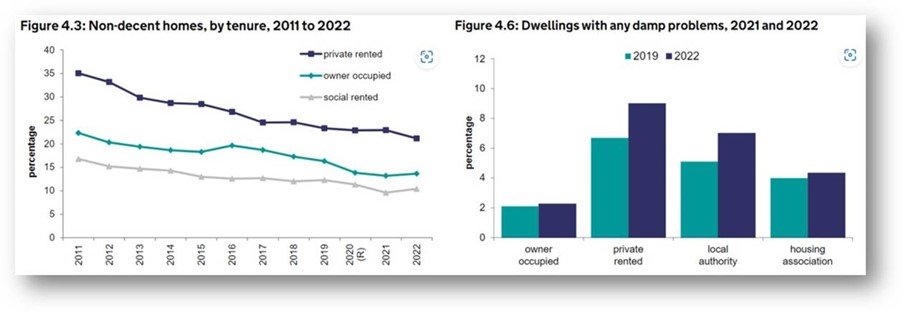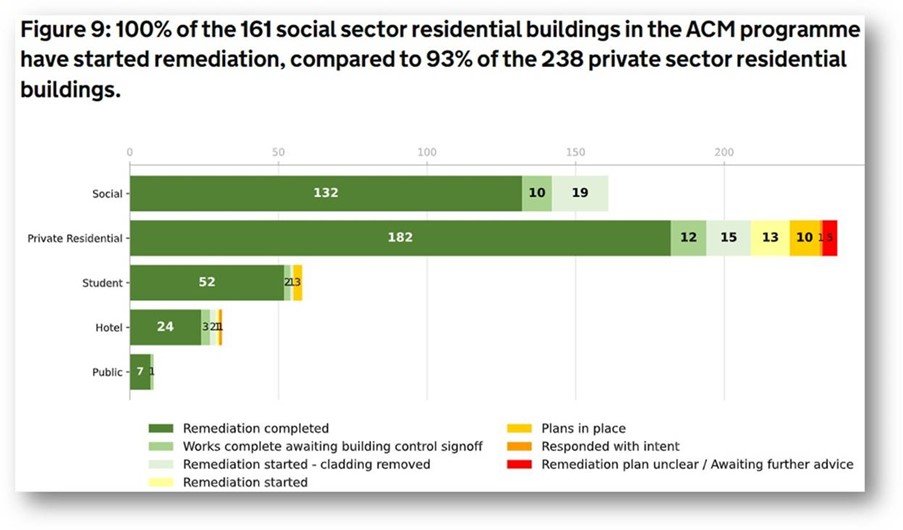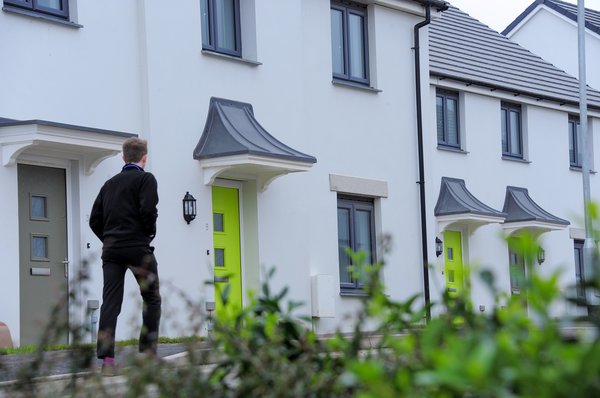“Having access to a decent, affordable home is as essential as having clean air to breathe.”
It’s estimated that more than twice as many households in the private sector have a damp and mould problem than in the social housing sector, so when will the government require these landlords to ‘level up’ and meet the Decent Homes Standard too? Allister Young, CEO at Coastline Housing, looks at some surprising statistics and addresses a recurring prejudice.
You might remember the name Awaab Ishak. Awaab was a young boy, aged two, who died in December 2020. In 2022 the Coroner’s court in Rochdale, where Awaab’s family lived, concluded that his death was caused by prolonged exposure to black mould in his home, which caused a severe respiratory condition, resulting in him dying from a cardiac arrest.
There was extensive press coverage. Michael Gove (Secretary of State for Levelling Up, Housing & Communities) and Steve Barclay (Secretary of State for Health & Social Care) wrote in response to the Coroner’s report to say what the government was planning to do to stop the same thing happening again.
The Ishaks lived in social housing, and were customers of a housing association called Rochdale Boroughwide Housing. The press coverage and the response from government I mentioned above largely focused on what the implications were for social housing. In particular, the government proposed ‘Awaab’s Law’, which would require social housing landlords to respond to particular health and safety issues (where homes don’t meet the Decent Homes Standard) within prescribed timescales.
‘Awaab’s Law’ became part of the Social Housing (Regulation) Act in July 2023. On 9 January this year, the government began a consultation about how it would be implemented. It sets out proposals for how the government will ensure that social landlords address hazards in homes, including damp and mould, within certain timescales.
So, new regulations and requirements for us to consider, to make sure that Coastline stays ahead of the game and is providing the service that our customers should expect from us. Thankfully we’ve got an excellent in-house team on the case, and we regularly reach out to customers to encourage them to be proactive in telling us if they are having issues.
But what if you’re not a Coastline customer, or a customer of any of the other social landlords across the country? What if you live in the private rented sector? Well, that’s a different story….
There is no requirement for homes outside the social housing sector to meet the Decent Homes Standard, and from the English Housing Survey it’s estimated that 1 in 5 homes in the private rented sector don’t meet the Standard, compared to 1 in 10 in the social housing sector (which is actually the sector with the highest proportion of ‘decent’ homes).
Drilling down into damp and mould, it’s estimated that 9% of homes in the private rent sector have a problem, compared to 5% of homes in the social rent sector. Which means there are 405,000 households in the private rent sector where there is a damp problem, more than twice as many as the 200,000 in the social housing sector.

But despite these established facts, and despite the ongoing situation where people who live in the private rented sector have no access to the Housing Ombudsman for redress, there has been little or no action.
It’s very reminiscent of the Grenfell Tower disaster, which at the time was and continues to be portrayed as a ‘social housing’ issue. Despite so much of the root cause being to do with building regulations and dodgy practice by various private sector contractors.
To illustrate this, take a look at the graph below, which comes from a government publication and shows that there are more buildings in the private sector with the unsafe cladding (247) than in the social housing sector (161), and that the social housing sector has been more effective in remediating buildings where the problem is identified.

If a genie granted me one wish for the future of housing in the UK, I’d probably be cheeky and wish for more than one wish (or more genies), because there’s a lot that needs to change. But if I could only have one, I’d find it difficult to think of a better one than to wish that everyone, regardless of the home they live in, regardless of who their landlord is, should have the same rights and responsibilities. And if I could be clever and incorporate it into that wish (or I was able to get an extra wish or extra genies!), I’d also wish that people could come to view the buildings that people live in as ‘homes’, and not as bricks and mortar financial assets.
Until that’s the case, it’s hard to see how people will stop viewing social housing in a prejudiced way, and it’s hard to see how people will stop viewing rented housing as something undesirable, and to think that anything other than owning a home is desirable or acceptable.
That’s why, in addition to providing social housing in Cornwall, Coastline will continue to lend its voice to wider campaigns to change how people see housing, and to look to a future where homes are seen as an essential foundation from which to build a decent life, as where it is understood that having access to a decent, affordable home is as essential as having clean air to breathe.
